Keywords:
Learning, teaching, pedagogy, strategies, motivationAbstract
This reflective paper born of the need to recognize the factors that are promoting student motivation in the learning environment in nowadays. Therefore, it was intended to interpret the relationship between the motivational patterns and learning strategies. To achieve the qualitative research was conducted using the method of ethnography by the technique of participant observation to recognize the motivational patterns and learning strategies used by teachers. This allowed the researcher could see and interact with their subject matter. Revealing that this relationship occurs when the student can choose the strategy, then he feels included in the process to make sense of the activities, contrary to when the teacher proposes the strategy because the student feels it is an imposition. Similarly, it attracted attention the fact that teachers use learning strategies of processing and less metacognitive strategies. It was also noted that some teachers use guidelines as individualized motivational explanation, give value to the question and the answer. However, the life project of students is not related to the objectives of the class, in the same way, there is not a feedback about a correct answer or a mistake. In conclusion, it must be more flexible the use of learning strategies by students and it is also necessary to integrate motivational patterns in the classroom according to their constructivist pedagogical model.
Downloads
References
Alonso Tapia, J. (2001). Motivación y estrategias de aprendizaje. Principios para su mejora en alumnos universitarios. En A. García- Valcárcel Muñoz-Repiso, Didáctica universitaria (pp. 79-112). Madrid, España: La Muralla S.A.
Alonso Tapia, J. (2005). Motivación para el aprendizaje la perspectiva de los alumnos. Recuperado de http://www.uam.es/gruposinv/meva/publicaciones%20jesus/capitulos_espanyoljesus/2005_motivacion%20para%20el%20aprendizaje%20Perspectiva%20alumnos.pdf
Alonso Tapia, J. (2007). Evaluación de la motivación en entornos educativos. En M. Álvarez, & R. Bisquerra, Manual de orientación y tutoría (p. 20). WoltersKluwer.
Ameigeiras, A. (2006). El abordaje etnográfico en la investigación social. En I. Vasilachis de Gialdino, Estrategias de investigación cualitativa (Primera ed., pp. 107 - 151). Barcelona, España: Gedisa.
Cepeda Islas, M. L., & López, M. d. (Enero de 2012). Evaluación de estrategias de aprendizaje y habilidad verbal en una muestra de estudiantes universitarios. (R. Bullé-GoyriMinter, Ed.) Revista Enseñanza e investigación en psicología, 17(1), 117-135.
Cid Cid, S. (17 de Junio de 2008). El uso de estrategias de aprendizaje y su correlación con la motivación de logro en los estudiantes. Revista Iberoamericana sobre calidad, eficacia y cambio en evaluación, 6(3), 101-120.
Díaz, M. (2008). De la práctica pedagógica al texto pedagógico. Universidad Pedagógica Nacional. Bogotá: Red académica.
Driver, R. (1986). Psicología cognoscitiva y esquemas conceptuales de los alumnos. Enseñanza de las ciencias: Revista de investigación y experiencias didácticas, 4(1), 3-15.
Escaño Aguayo, J., & Gil de la Serna Leira, M. (2006). La enseñanza de la motivación y el esfuerzo. En Ministerio de educación y ciencia, & C. Coll (Ed.), Conocimiento educativo. La disrupción en las aulas. Problemas y soluciones. (pp. 143 - 152). España: Edigrafos S.A.
Gento Palacios, S., & Huber, G. (2012). La investigación en el tratamiento educativo de la diversidad (Primera ed.). Madrid, España: UNED.
González Ornelas, V. (2003). Estrategias de enseñanza y aprendizaje. (G. Moreno Manzur, Ed.) México, México: Pax México.
Ibáñez Bernal, C. (Marzo de 2007). Un análisis crítico del modelo del triángulo pedagógico. Una propuesta alternativa. Revista mexicana de investigación educativa, 32(12), 435-456.
Judue J, G. (2001). Algunos efectos de la ansiedad en el rendimiento escolar. Estudios pedagógicos (Valdivia)(27), 111-118.
Maslow, A. (1991). Motivación y personalidad. Madrid: Díaz de santos.
Newmann, F. M., & Wehlage, G. G. (1993). Five standards of authentic instruction. Recuperado de http://www.learner.org/workshops/socialstudies/pdf/session6/6.AuthenticInstruction.pdf
Pagano, M. (2012). Rendimiento académico y su relación con aspectos motivacionales. (T. Gómez Fernández, Ed.) Didac (59), 11-16.
Porlán Ariza, R. (1997). Constructivismo y escuela. Hacia un modelo de enseñanza - aprendizaje basado en la investigación (Tercera ed.). Sevilla, España: Diada Editora S.L.
Sbert Rosselló, M., C., & Muñoz, D. (Enero de 1996). La importancia de las preguntas. (C. Praxis, Ed.) Cuadernos de pedagogía, (243), 73-77.
Taylor, S., & Bogdan, R. (1987). Introducción a los métodos cualitativos de investigación (Tercera ed.). (J. Piatigorsky, Trad.) Barcelona, España: Páidos.
Valle Arias, A., González Cabanach, R., Núñez Pérez, J., Rodríguez Martínez, S., & Piñeiro Aguín, I. (2001). Diferencias en la utilización de estrategias de aprendizaje según el nivel motivacional de los estudiantes. (F. Hernández Pina, Ed.) Revista de educación investigativa, 19(1), 105-126.
Vásquez Rodríguez, A. (2009). La motivación escolar. Revista Umbral (18), 118 - 127.
Venezuela Millán, M. (2008). Factores Motivacionales. (Universidad de Oriente, Cumaná, Venezuela). Recuperado de http://ri.biblioteca.udo.edu.ve/bitstream/123456789/1088/1/Tesis.Factores%20de%20Motivacion.pdf
Zambrano Leal, A. (2006). Los hilos de la palabra: pedagogía y didáctica (Primera ed.). (P. Gaona, Ed.) Bogotá, Colombia: Magisterio. RESUMEN





